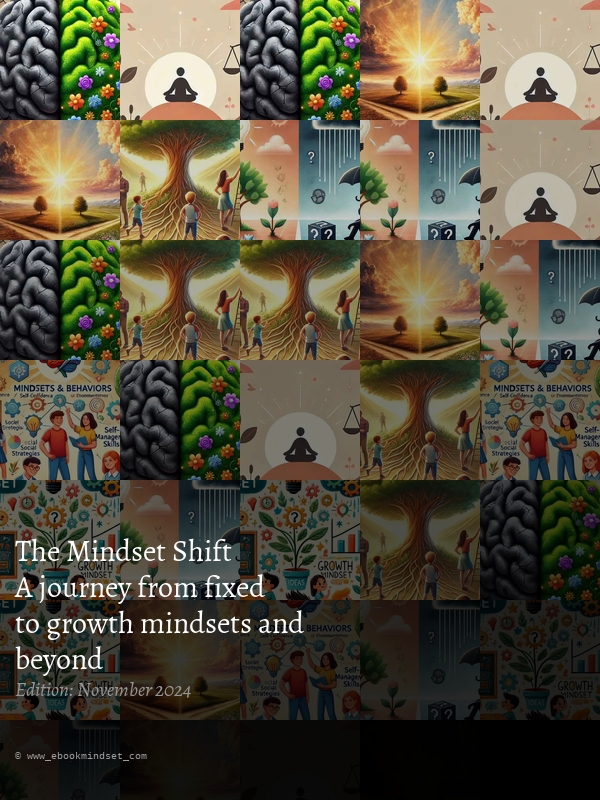Understanding Learner and Judger Mindsets
The concept of learner and judger mindsets is a transformative framework influencing how individuals approach challenges, interact with others, and shape their experiences. This article explores the distinctions between these mindsets, their implications for personal and professional growth, and strategies for fostering a learner mindset.
What are Learner and Judger Mindsets?
Learner Mindset
Characterized by curiosity, openness, and a willingness to explore new ideas and perspectives. Individuals with a learner mindset seek deep understanding, ask questions, and embrace challenges as growth opportunities. They view mistakes as learning experiences.
Judger Mindset
Defined by a tendency to evaluate, criticize, and make quick judgments. Those with a judger mindset often feel defensive, cling to viewpoints, and resist change or new ideas. This mindset can lead to a fixed perspective where challenges are seen as threats.
The Origins of the Mindset Framework
The learner-judger distinction was developed by Marilee Adams. Her work emphasizes the impact of questions on thought processes and outcomes. Her book, Change Your Questions, Change Your Life, introduces the Choice Map, a tool to help individuals navigate their thinking by choosing between learner and judger questions.
Characteristics of Learner and Judger Mindsets
Learner Mindset Characteristics
- Curiosity: A desire to explore and understand.
- Open-mindedness: Willingness to consider multiple perspectives.
- Adaptability: Flexibility in response to new information or changing circumstances.
- Reflectiveness: Taking time to think about experiences and learn from them.
- Collaboration: Engaging with others to co-create solutions.
Judger Mindset Characteristics
- Defensiveness: Protecting one's views against perceived threats.
- Criticism: Focusing on what is wrong rather than what can be improved.
- Resistance to Change: Difficulty accepting new ideas or approaches.
- Narrow Focus: Limited perspective that overlooks alternative solutions.
- Blame Culture: Assigning fault instead of seeking understanding or resolution.
The Impact of Mindsets on Communication
Communication Styles
Learner Questions
Open-ended, exploratory, and promote dialogue. Examples include:
- "What do you think about this approach?"
- "How can we improve this situation together?"
Judger Questions
Often closed-ended or leading questions that imply criticism. Examples include:
- "Why did you do it that way?"
- "Don't you think this is a bad idea?"
The Role of Mindsets in Problem-Solving
A learner mindset enhances problem-solving:
- Identify the Problem: Learners approach problems with curiosity, asking questions like "What is really going on?" or "What can I learn from this?"
- Explore Solutions: Learners brainstorm multiple solutions; judgers may quickly dismiss alternatives.
- Implement Changes: Learners experiment with new approaches and learn from feedback; judgers may resist change.
Strategies for Cultivating a Learner Mindset
Fostering a learner mindset requires intentional practice:
- Practice Self-Awareness: Regularly reflect on thoughts and reactions. Identify when slipping into a judger mindset.
- Ask Powerful Questions: Shift internal dialogue from judgments to inquiries. Use questions that promote exploration.
- Embrace Failure as Learning: Reframe failures as growth opportunities. Analyze what went wrong without assigning blame.
- Seek Feedback Actively: Encourage others to share perspectives. View feedback as a tool for improvement.
- Engage in Collaborative Learning: Participate in group discussions where diverse viewpoints are welcomed. Use facilitated sessions to encourage open dialogue.
- Utilize Tools Like the Choice Map: Implement frameworks that help visualize choices between learner and judger paths.
The Benefits of Adopting a Learner Mindset
Embracing a learner mindset leads to numerous benefits:
- Enhanced Relationships
- Increased Creativity
- Greater Resilience
- Improved Performance
Conclusion
The distinction between learner and judger mindsets is crucial for personal development and effective communication. By consciously choosing a learner mindset, individuals can enhance problem-solving skills, improve relationships, and foster an environment conducive to growth and innovation. This benefits individuals, teams, and organizations.
Incorporating practices that promote a learner mindset transforms how we interact with challenges and opportunities. By asking better questions, remaining open-minded, and viewing experiences through curiosity, we pave the way for continuous learning and development.




